
Self (Archive Footage)
Through little-seen archival material and his characteristically cinematic analysis, Mark Cousins narrates the ascent of fascism in Italy and its fall-out across 1930s Europe. In The March on Rome, which is simultaneously an essay film and a historical document, Cousins contextualises history through the here and now, holding a mirror up to a political landscape marked by a creeping far right and manipulated media.
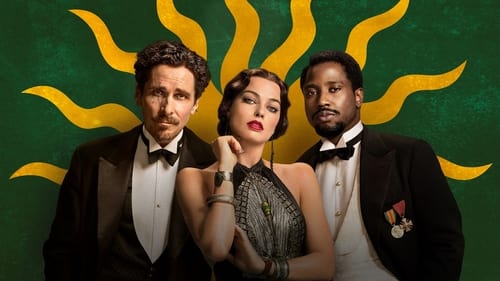
Self (Archival Footage)
Na década de 1930, três amigos testemunham um assassinato, são acusados e descobrem uma das tramas mais ultrajantes da história americana.
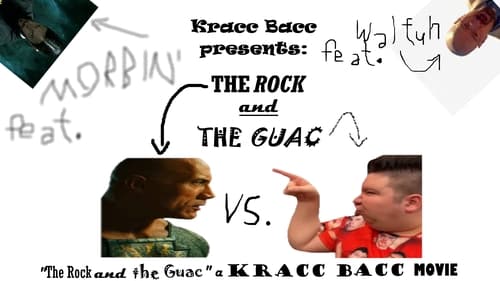
Writers' Production
Tired of the verbal abuse of fans, Nikocado decides to go to the world of Minecraft and take revenge on The Rock, what follows will shock you, Waltuh.
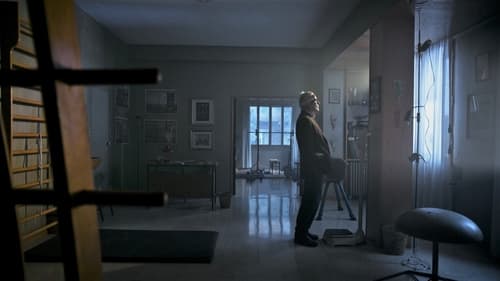
Self (archive footage) (uncredited)
"Marx can wait" was something Camillo Bellocchio said to his twin Marco the last time they met before the former died at a young age in the heated days of 1968. This documentary is dedicated to his memory.

Self (archive footage)
Cinecitta is today known as the center of the Italian film industry. But there is a dark past. The film city was solemnly inaugurated in 1937 by Mussolini. Here, propaganda films would be produced to strengthen the dictator's position.

Self - Politician (archive footage)
For more than a decade, Reichsmarschall Hermann Göring, Adolf Hitler's right-hand man during the infamous Third Reich, assembled a collection of thousands of works of art that were meticulously catalogued. Why did he steal entire collections, mainly those belonging to Jewish families, ultimately victims of the Shoah? Was it to satisfy his aesthetic ambitions and his insatiable personal greed or was he acting in the common interest of the Nazi rulers?

Self - Politician (archive footage)
Through letters, diaries and personal testimonies, an account of the complexity and variety of experiences of LGBT Italians during the Fascist dictatorship of Benito Mussolini (1922-43); intimate words that contrast with the lyrics of popular songs and the propaganda of the time, obsessed with extolling the myths of virility, femininity and motherhood and constrained by sexual repression.
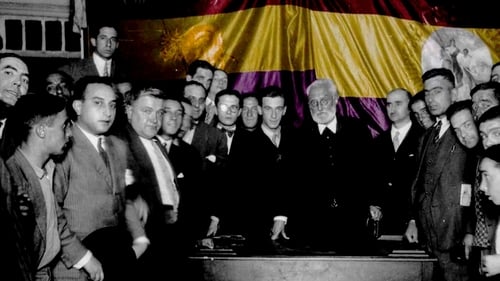
Self - Politician (archive footage)
Spain, April 14, 1931. The Second Republic is born. From the beginning, the writer Miguel de Unamuno is considered one of the ethical pillars of the new regime. Five years later, on December 31, 1936, a few months after the outbreak of the Spanish Civil War (1936-39), Unamuno dies at his home in Salamanca, capital of the rebel side, led by General Francisco Franco, and main center of dissemination of its propaganda apparatus.
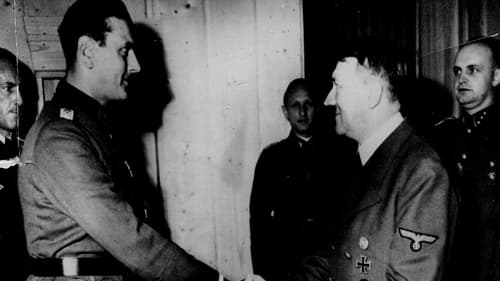
Self - Politician (archive footage)
Waffen-SS officer Otto Skorzeny (1908-75) became famous for his participation in daring military actions during World War II. In 1947 he was judged and imprisoned, but he escaped less than a year later and found a safe haven in Spain, ruled with an iron hand by General Francisco Franco. What did he do during the many years he spent there?

Self (archive footage)
This richly illustrated historical documentary investigates the mechanism of nationalist feelings that radicalise. It shows how fascism was on the rise even a decade before the founding of the NSB, due to a number of anti-democratic initiatives led by a millionaire with a predilection for one-legged women, a market vendor, a cleric, and an artist. Historians, writers and collectors of fascist curios reveal how an initially marginal and fragmented movement grew into a radical populist party.
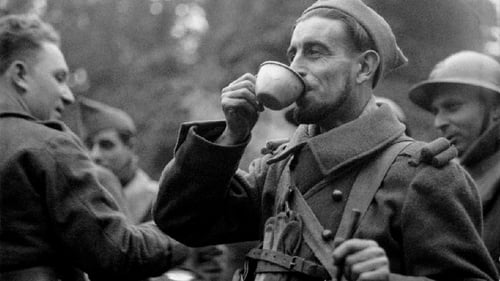
Self - Politician (archive footage)
September 3rd, 1939. Britain and France declare war on Nazi Germany, only two days after the Wehrmacht invades Poland. This day, the sad date when the fate of the world changed forever, the Phoney War began: eight months of uncertainty, preparations, evacuations and skirmishes.

Играет самого себя (archive footage)

Self (archive footage) (uncredited)
How could Hitler and Stalin, sworn ideological enemies, come to a secret pact in 1939? The captivating and detailed story of the diplomatic fiasco that led to the signing of the Nazi-Soviet pact and its devastating consequences.

Self (archive footage) (uncredited)
A democracy should protect its most vulnerable citizens, but increasingly the United States is failing to do so. This investigation blends the insights of experts with the experiences of citizens of the Rust Belt in the Midwest where the steel industry once flourished, but where closures and outsourcing have left urban areas desolate. It is here where Donald Trump finds some of his most fervent supporters.
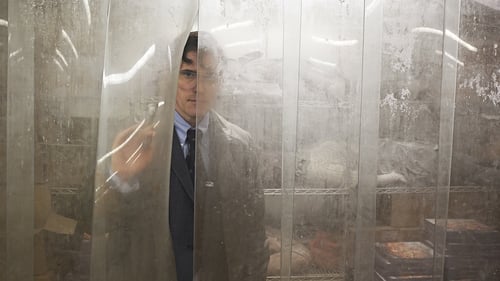
Self (archive footage) (uncredited)
Um dia, durante um encontro fortuito na estrada, o arquiteto Jack mata uma mulher. Este evento provoca um prazer inesperado no personagem, que passa a assassinar dezenas de pessoas ao longo de doze anos. Devido ao descaso das autoridades e à indiferença dos habitantes locais, o criminoso não encontra dificuldade em planejar seus crimes, executá-los ao olhar de todos e guardar os cadáveres num grande frigorífico. Tempos mais tarde, ele compartilha os seus casos mais marcantes com o sábio Virgílio numa jornada rumo ao inferno.

Self (archive footage)
Franco on Trial is the new film by Dietmar Post and Lucía Palacios. After the success of Franco's Settlers, their first encounter with Franco's dictatorship, they are now setting their sights on one of the darkest chapters of European history: the presumed organized extermination that took place during the coup, the war, and the subsequent dictatorship led by Franco, as well as Argentina's current effort, by invoking the principle of universal jurisdiction, to prosecute Francoists accused of committing crimes against humanity. The film is also a sore reminder of an issue that still stands today: the clear-cut accountability held by Germany, Italy, and Portugal. The film accomplishes to give both sides a voice - those against whom the killing has been directed; and the side of the perpetrators.
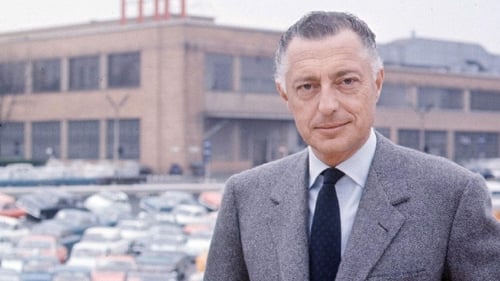
Self (archive footage)
Retrato biográfico de Gianni Agnelli, o lendário industrial italiano, playboy e formador de opinião, contado por familiares, amigos, amantes, confidentes profissionais, rivais - e até mesmo seu mordomo e cozinheiro.
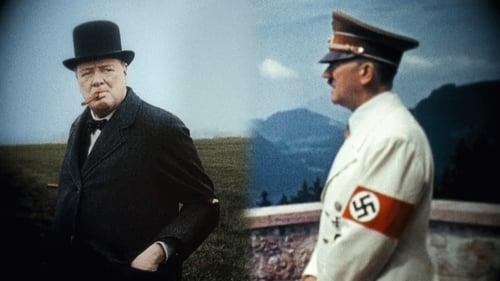
Self - Politician (archive footage)
Winston Churchill, one of the most revered men of the twentieth century. Adolf Hitler, one of the most hated leaders in contemporary history. Between 1940 and 1945, these two enormously contradictory personalities faced each other in both politics and war. A clash of giants whose story begins in the trenches of the World War I and ends with the debacle of the World War II.
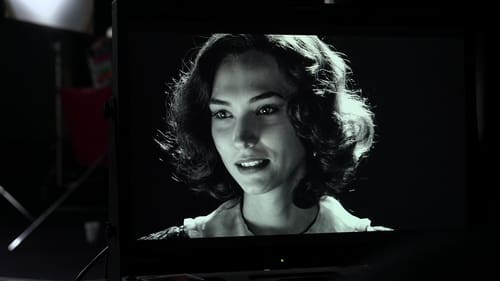
Himself - Politician (archive footage)
A história do cinema italiano sob o fascismo, uma indústria cinematográfica sofisticada construída em torno da fundação dos estúdios Cinecittà e do nascimento bem-sucedido de um star system doméstico, povoado por artistas muito peculiares entre os quais se destacaram várias atrizes belas, magnéticas e especiais; uma história negra de guerra, drogas, sexo, censura e tragédia.
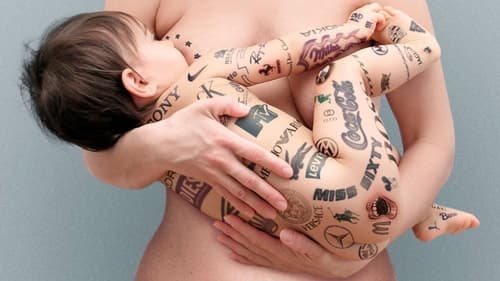
Self (archive footage)
In the last 250 years, free-market ideology has played a central role in the development of the logic and rhetoric that have influenced the daily life of populations throughout the world. It was cornered for a few decades during the twentieth century in favor of a social economy for the public interest, and then returned to the limelight in the last thirty years of the century to dominate the logics that drive world economies, doing the favor of the elites at the expense of 99%. Through the testimony of six people informed about the facts, Laissez-faire offers a historical and ideological perspective through which to identify the fundamental problems of the economic mechanism on which societies are based.

Self (archive footage)
The real reasons and orchestrators behind Hitler, to an incredible theory of the JFK assassination, all the way to 9/11 and the current age of the terrorist. Taken from an historical perspective starting around World War 1 leading to present day.

Himself

Himself (archive footage)
Academy Award®–winning documentary filmmaker Alex Gibney (Taxi to the Dark Side) explores the charged issue of pedophilia in the Catholic Church, following a trail from the first known protest against clerical sexual abuse in the United States and all way to the Vatican.

Se stesso

Self (archive footage)
A double portrait of two dictators who were thousands of miles apart but were constantly fixated on each other.
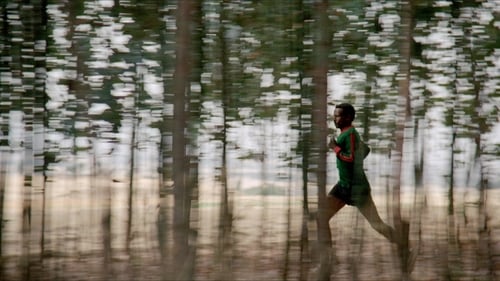
Himself (archive footage)
Running the streets of Rome in 1960, an unknown, barefooted Ethiopian man stunned the world by winning Olympic gold in the marathon. Overnight, Abebe Bikila became a sports legend. A hero in his own country and to the continent, Bikila was the first African to win a gold medal, and four years later in Tokyo would become the first person in history to win consecutive Olympic gold medals in the marathon.

Self (archive footage)

Self (archive footage) (uncredited)
O filme acompanha uma mãe que se apaixona por um homem mais novo enquanto sua filha se apaixona pela primeira vez. A mãe natureza meche com o destino deles.
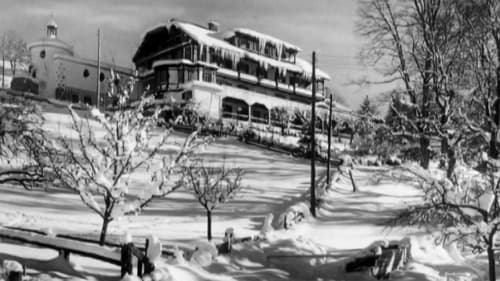
Adolf Hitler spent over 1,000 days on the Obersalzberg, his mountain holiday refuge near Berchtesgaden. It was there he made his decisions about war and destruction. The producers, through special permits, explore the abandoned concrete tunnels in search of the relics of history of Hitler’s mountain and to tell almost forgotten tales of the people who lived there, high up in the shadow of power.

Self (archive footage)
After the World War I, Mussolini's perspective on life is severely altered; once a willful socialist reformer, now obsessed with the idea of power, he founds the National Fascist Party in 1921 and assumes political power in 1922, becoming the Duce, dictator of Italy. His success encourages Hitler to take power in Germany in 1933, opening the dark road to World War II. (Originally released as a two-part miniseries. Includes colorized archival footage.)

After Prisoners of the war and On the Heights all is Peace, this film concludes Yervant Gianikian and Angela Ricci Lucchi's trilogy on the first world war. From the emblem of totalitarianism to individual physical suffering, the directors use this representation of man's rampaging violence to draw up an anatomical inventory of the damaged body and examine the consequences of the conflict on children, from 1919 to 1921. From the deconstruction to the artificial reconstruction of the human body, they try to understand how humanity can forget itself and perpetuate these horrors.

Self (archive footage)
A partir da polêmica decisão da Suprema Corte de Justiça americana concluindo que uma corporação, aos olhos da lei, é uma "pessoa", são analisados os poderes das grandes corporações no mundo atual. A exploração da mão-de-obra barata no Terceiro Mundo e a devastação do meio ambiente são alguns dos fatos explorados, que entrevistam presidentes de corporações como a Nike, Shell e IBM, além de Noam Chomsky, Milton Friedman e Michael Moore.
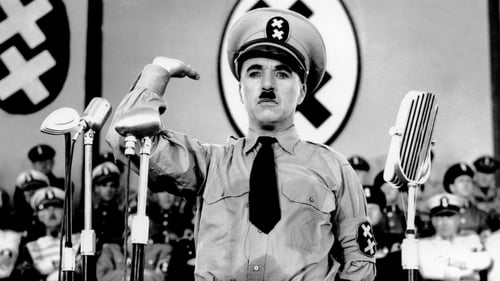
Self (archive footage) (uncredited)
A look at the parallel lives of Charlie Chaplin and Adolf Hitler and how they crossed with the creation of the film “The Great Dictator,” released in 1940.

Self (archive footage)
A short documentary based on Sergio Leone's life and career, and the making of the film "Once Upon a Time in America."

Himself (with Nobile) (archive footage)
Frozen heart tells the story of Roald Amundsen, a well known polar hero from Norway.

Self (archive footage)
Human Remains is a haunting documentary which illustrates the banality of evil by creating intimate portraits of five of the 20th century's most reviled dictators. The film unveils the personal lives of Adolf Hitler, Benito Mussolini, Joseph Stalin, Francisco Franco and Mao Tse Tung. We learn the private and mundane details of their everyday lives -- their favorite foods, films, habits and sexual preferences. There is no mention of their public lives or of their place in history. The intentional omission of the horrors for which these men were responsible hovers over the film.

Self (archive footage)
This is a rare look at one of the worst horror stories in the long infamous history of warfare. This series features captured German and Russian film footage, much of which has never been seen before. For decades the Cold War prevented us from looking closely at what really happened between the Russians and the Germans on the Eastern Front during World War II. More than a struggle between nations, it pitted maniacal tyrant against maniacal tyrant, evil ideology against evil ideology. The lives of tens of millions of human beings were consumed by its raging hatreds and appalling indignities. One in every ten Russians died. One in every four Poles died. Whole divisions of Italians, Romanians, Hungarians disappeared with barely a trace. An average of 17,800 people died on every single day and this, the war on the Russian German Front, lasted for 1,400 days. This series features captured German and Russian film footage, much of which has never been seen before.

(uncredited)
DEATH SCENES II continues the exploration into the dark recesses of violence and rage that ended in such heinous crimes as the Manson Family's assault on society. You'll see the gruesome aftermath of mob reprisals, public executions and international terrorism. DEATH SCENES II uniquely ushers the brave and curious into a spellbinding trip through the reality that is our world today.

Himself (archive footage)
This film tells the story about the concentration camp run by Ustashas and was made on the 40th anniversary of the inmates' escape from the camp.

Self (archive footage)
Human torture. Factories of death. War atrocities. The crimes that haunt the pagse of history are chronicled in the piercing documentary Camps of Death. Following Hitler's murderous career, the film traces his rise to power, his ultimate demise, and the subsequent nuremberg trials that publicized the horrors of Hitler's regime. Concentration camp footage combines with chilling POW interviews to graphically create the nazi nightmare that few could hope to survive. A powerful look at the third reich adn the horrifying fate of its enemies.

Self (archive footage)
A collection of bloopers and outtakes from an enormous selection of Hollywood classic productions spanning from the 1930s through the 1980s.
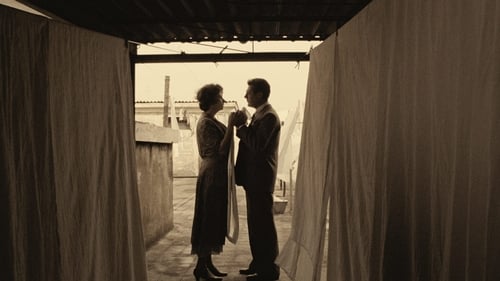
Self (archive footage) (uncredited)
O filme é ambientado durante a década de 1930: a ocasião é o primeiro encontro entre Mussolini e Hitler. Deixado sozinho em sua casa quando o marido cortiço fascista foge para participar do evento histórico, Sophia Loren inicia uma amizade com seu vizinho misterioso Mastroianni. Como o dia segues em noite, Loren e Mastroianni desenvolver uma relação muito especial que vai alterar radicalmente tanto de suas perspectivas sobre a vida.

Self (archive footage)
Trata de um dos personagens mais controversos da história do Brasil: Getúlio Vargas, ditador e, depois, presidente constitucional, em mandato encerrado por seu suicídio. O filme utiliza cinejornais do Departamento de Imprensa e Propaganda e da Agência Nacional, além de imagens de arquivo da família de Vargas.
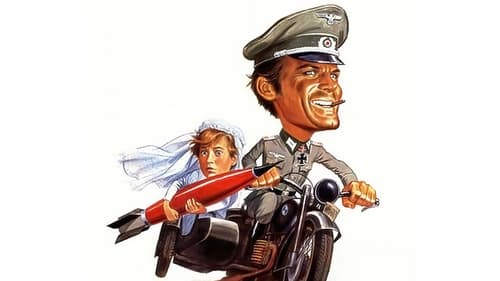
Self (archive footage) (uncredited)
Aventureiros desastrados transformam a Segunda Grande Guerra na maior bagunça.

Self (archive footage) (uncredited)
Documentary compiled from archives and accompanied by a poet's commentary, shows the sweep of modern Italian history from 1911 to 1961, centering on the conditions leading to Fascism and the post-WWII reaction to the Fascist experience.

Self (archive footage)

Benito Mussolini

Self (archive footage)
Documentary on the Greek history of the first half of the 20th century, from the Balkan wars until December events, with a special emphasis on the Asia Minor Catastrophe and its aftermath, through filmed documents by Joseph Hep, George Prokopiou, Achilleas Mandras, Philopimenas Finos, Gabriel Loggos and Kyriakos Kourbetis.

Self (archive footage)
Documentary of war atrocities with newsreel footage of concentration camps.

Self (archive footage)
Compilation film about a very German first half of the 20th century.

Self (archive footage)
An account of Adolf Hitler's rise and fall, his relationship with Eva Braun and their days of leisure at the Berghof, their Bavarian residence.

Self (archive footage)
Know Your Ally: Britain was a 45-minute propaganda film made in 1944. It was narrated by Walter Huston and produced by the United States War Department and Signal Corp to solidify Anglo-American solidarity within the ranks as well as counter Nazi propaganda aimed at weakening the Alliance.

Himself (archive footage)
Canadian documentary on war time Italy.

Himself (archive footage)
This short traces the history of sound in the movies, beginning with French scientist Leon Scott's experiments in 1857. Featured are snippets from early sound pictures.

Self (archive footage) (uncredited)
"Docudrama" about the bombing of Pearl Harbor on December 7th, 1941 and its results, the recovering of the ships, the improving of defense in Hawaii and the US efforts to beat back the Japanese reinforcements.

Self (archive footage)
Documentary examining the events which led up to the Second World War.
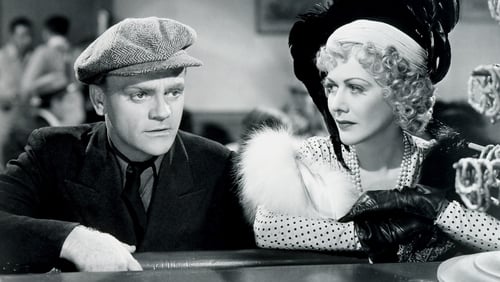
Self (archive footage) (uncredited)
After World War I, Armistice Lloyd Hart goes back to practice law, former saloon keeper George Hally turns to bootlegging, and out-of-work Eddie Bartlett becomes a cab driver. Eddie builds a fleet of cabs through delivery of bootleg liquor and hires Lloyd as his lawyer. George becomes Eddie's partner and the rackets flourish until love and rivalry interfere.

Self (archive footage)
A documentary about the threat of war breaking out in Europe, focusing on Hitler, Stalin and Mussolini.

Self (archive footage)
Nazi propaganda film contrasting Germany in the days of the Weimar Republic with contemporary Germany under Adolf Hitler.

Self (archive footage)
Short documentary film in the newsreel series 'The March of Time'.

Self
The center piece of the this propaganda film is Mussolini's visit to the the German Olympic Stadium in 1937, where he was greeted that 1 million people jammed into the stadium to hear him speak. Also features speeches in nearby Mayfield, various meetings that Mussolini had with prominent members of the Nazi party in Munich, Mussolini's watching German Army field exercises, and, with Hermann Göring, reviewing military parades.

Himself (archive footage)
For Histoire du soldat inconnu (Story of the Unknown Soldier) Storck watched newsreels for the whole of 1928, the year when 60 nations signed a pact outlawing war, and juxtaposed this heart-warming utopia with the signs of a forthcoming conflict (this was in 1932) – burgeoning nationalism, police brutality, excessive colonialism, bellicose politics. Ferocious editing sarcastically juxtaposes these good intentions with the political farce of speeches and parades, all to the tune of factory chimneys collapsing in slow motion and the exhumed body of an “unknown soldier”. —cinematek.be

The perfect body as an object of cult worship. Based on the mass sports and body worship movement of the 1920s, the film propagates physical training and shows in stylized documentary scenes aspects of physical hygiene, gymnastics, sports and dancing as well as scenes in which supposed sportsmen of antiquity pose naked.

Self (archive footage)
Official film of the days of the March on Rome and the born of Fascism.

Self (archive footage) (uncredited)
the italian social republic was born in september 1943 after the armistice with the allies and the liberation of mussolini, as an attempt to rebuild an italian state that would continue the work of fascism. the government of the new republic is based in salo ', on the shores of lake garda, with a political center in verona, where the republican fascist party is rebuilt. from then until 1945 Italy lived nineteen dramatic months, characterized by deaths and destruction. in the vain attempt to regain the consent of the masses, the republic of salo 'became an instrument of repression in the hands of the Germans and collapsed, in April 1945, in the face of the advance of the allied armies. this documentary reconstructs the history of those 600 days with largely unpublished material.




















































